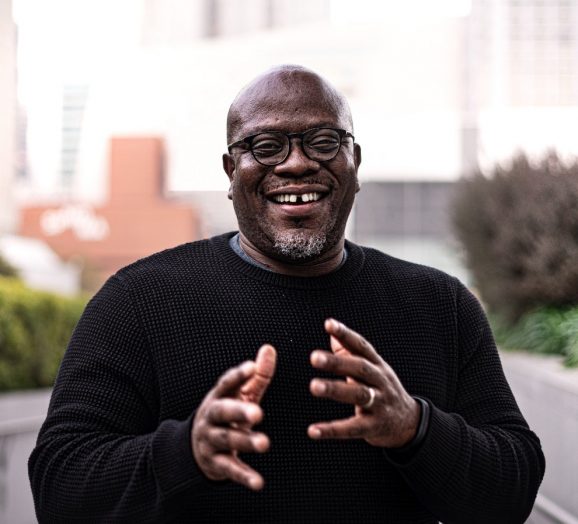Africa: the next frontier for fintech

John E. Kaye
- Published
- Banking & Finance, Home, Technology

An interview with Dare Okoudjou, founder and CEO of MFS Africa
With a young population and a budding tech scene, Africa holds much promise for investors and business leaders alike. But for a continent made up of 54 countries, all with their own challenges and opportunities, what does it truly mean to do business in Africa? The European spoke with Dare Okoudjou, founder and CEO of pan-African fintech, MFS Africa to find out more.

Tell us about yourself and your journey to starting
MFS Africa.
Dare Okoudjou: MFS Africa was born out of the frustrations I experienced as a Beninese emigrant seeking to keep in touch with family and friends in Africa. Throughout my time studying at INSEAD business school in Paris and learning the corporate way in PwC’s telecommunications and media practice during the “dot-com boom”, there was one fundamental change – making calls back home. At first, it was truly a struggle to make calls to Africa, but gradually there were major improvements as the international telecoms network developed, and eventually it became a simple process. And this led me to ask myself – if making calls across borders can be so easy, why was it so difficult to send money in the same way?
Africa has continued to outpace the rest of the world when it comes to mobile money services, what is the driver behind the rise of the sector and what needs to happen for digital payments to be a viable alternative
to cash?
Like a lot of strengths, Africa’s leadership in mobile money came out of a weakness. Conventional banking has never made huge headway on the continent, with only five bank branches per 100,000 people in sub-Saharan Africa. By contrast, mobile phones are everywhere, with penetration in Africa at 73% – providing unfettered access to the internet and money transfer services.
Africa can now lay claim to nearly half of the global total of registered mobile money accounts, with nearly 400 million in total. But mobile money is beginning to push up against the limits of African regulatory and technical infrastructure. Our young and optimistic population is keen to drive new ideas forwards and do business without borders, but regulatory systems can make it complex to transfer money across national borders.
Regulations have historically limited innovation in finance. How has MFS Africa navigated the African regulatory terrain and how does that influence the MFS Africa offering?
African regulators are in an unenviable position. Central banks work with bank-centric regulations based on Western banking systems while overseeing markets where technological innovations are pushing the cutting edge of payments. The legacy of regulations created for banks means that the regulators contend with the challenge of retrofitting document-heavy processes for the new mobile-first reality in a continent where sometimes there is no complete citizen registry or formal proof of address documents.
MFS Africa engages with regulators to demonstrate the technology, showcase our world-class compliance function, and explain how digital channels actually support regulators’ mandates, from financial inclusion to lowering risk of money laundering. Historically regulators have viewed fintech solutions as a threat to banks, but over the last several years, it’s become clear that the real competition is cash. When it comes to cross-border transactions, cash is expensive, risky, and opaque, whereas mobile money and digital payments are traceable, affordable, and convenient.
What advice would you give other international enterprises looking to do business in Africa?
I encounter a common mistake when talking to non-Africans about Africa – whether they mean it or not, they often slip into talking about it as if it were one big country, rather than 54 individual ones. For international businesses looking to establish a lasting and impactful presence here, it’s important to understand those nuances and to get a feel for the local context. In my own experience, nothing beats having people on the ground – it’s why we’ve established a 70-strong team of people with in-depth local knowledge of the countries where we have a presence. I’d urge any international businesses looking to tap into the dynamism of Africa to seek trusted local partners here and approach it with the mindset of doing business with Africa rather than in Africa.
What role do you see cross-border payments playing in Africa’s continued development?
From a business perspective, most African countries are sub-scale. To make an enduring impact and drive forward Africa’s development, African ventures need to be able to grow beyond their home markets. The difficulty of making transactions across borders has been a brake on our ambitions for far too long, and it’s this that drives us to pursue our vision of a mobile money hub that takes all the pain out of these payments. It’s why we’ve partnered with the likes of Visa and MoneyGram, opening up this hub to ever more networks so that more businesses and consumers can easily make international transactions, and it’s why we acquired Beyonic and brought these capabilities to more small businesses in Africa.
Further information
RECENT ARTICLES
-
 Europe opens NanoIC pilot line to design the computer chips of the 2030s
Europe opens NanoIC pilot line to design the computer chips of the 2030s -
 Building the materials of tomorrow one atom at a time: fiction or reality?
Building the materials of tomorrow one atom at a time: fiction or reality? -
 Universe ‘should be thicker than this’, say scientists after biggest sky survey ever
Universe ‘should be thicker than this’, say scientists after biggest sky survey ever -
 Lasers finally unlock mystery of Charles Darwin’s specimen jars
Lasers finally unlock mystery of Charles Darwin’s specimen jars -
 Women, science and the price of integrity
Women, science and the price of integrity -
 Meet the AI-powered robot that can sort, load and run your laundry on its own
Meet the AI-powered robot that can sort, load and run your laundry on its own -
 UK organisations still falling short on GDPR compliance, benchmark report finds
UK organisations still falling short on GDPR compliance, benchmark report finds -
 A practical playbook for securing mission-critical information
A practical playbook for securing mission-critical information -
 Cracking open the black box: why AI-powered cybersecurity still needs human eyes
Cracking open the black box: why AI-powered cybersecurity still needs human eyes -
 Tech addiction: the hidden cybersecurity threat
Tech addiction: the hidden cybersecurity threat -
 Parliament invites cyber experts to give evidence on new UK cyber security bill
Parliament invites cyber experts to give evidence on new UK cyber security bill -
 ISF warns geopolitics will be the defining cybersecurity risk of 2026
ISF warns geopolitics will be the defining cybersecurity risk of 2026 -
 AI boom triggers new wave of data-centre investment across Europe
AI boom triggers new wave of data-centre investment across Europe -
 Make boards legally liable for cyber attacks, security chief warns
Make boards legally liable for cyber attacks, security chief warns -
 AI innovation linked to a shrinking share of income for European workers
AI innovation linked to a shrinking share of income for European workers -
 Europe emphasises AI governance as North America moves faster towards autonomy, Digitate research shows
Europe emphasises AI governance as North America moves faster towards autonomy, Digitate research shows -
 Surgeons just changed medicine forever using hotel internet connection
Surgeons just changed medicine forever using hotel internet connection -
 Curium’s expansion into transformative therapy offers fresh hope against cancer
Curium’s expansion into transformative therapy offers fresh hope against cancer -
 What to consider before going all in on AI-driven email security
What to consider before going all in on AI-driven email security -
 GrayMatter Robotics opens 100,000-sq-ft AI robotics innovation centre in California
GrayMatter Robotics opens 100,000-sq-ft AI robotics innovation centre in California -
 The silent deal-killer: why cyber due diligence is non-negotiable in M&As
The silent deal-killer: why cyber due diligence is non-negotiable in M&As -
 South African students develop tech concept to tackle hunger using AI and blockchain
South African students develop tech concept to tackle hunger using AI and blockchain -
 Automation breakthrough reduces ambulance delays and saves NHS £800,000 a year
Automation breakthrough reduces ambulance delays and saves NHS £800,000 a year -
 ISF warns of a ‘corporate model’ of cybercrime as criminals outpace business defences
ISF warns of a ‘corporate model’ of cybercrime as criminals outpace business defences -
 New AI breakthrough promises to end ‘drift’ that costs the world trillions
New AI breakthrough promises to end ‘drift’ that costs the world trillions



























